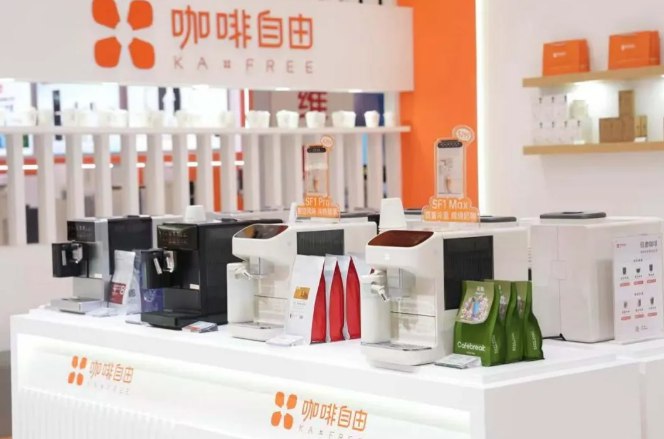




- BRNN
- BRI News
- BRNN News
- Database
Official Documents Polices and Regulations
Inter-government Documents International Cooperation BRI Countries
Business Guide Economic Data BRI Data
Trade
Investment Projects Latest projects
Cases - Content Pool
On the afternoon of May 15, 2025, a truck loaded with fully automatic coffee machines departed from Kalerm, a fully automatic coffee machine manufacturer in Xiangcheng district, Suzhou, east China's Jiangsu Province. Within days, the machines would be shipped from Shanghai's Yangshan Port to the Middle East.
"Although orders from the U.S. were temporarily on hold recently, our overall export volume continues to grow—some orders are now scheduled two months out," said Yuan Qing, deputy general manager of Kalerm.
Following the release of the joint statement on China-U.S. Economic and Trade Meeting in Geneva, the company's shipments to the U.S. resumed. One U.S. client rushed to replenish inventory, placing an order sufficient for six months of sales. To ensure on-time delivery, the company plans to add a new production line, according to Yuan.

Kalerm coffee machines are displayed at an expo. (Photo/The Development and Reform Commission of Xiangcheng district, Suzhou)
Kalerm has seen rapid growth in recent years. Revenue climbed from around 100 million yuan (about $13.88 million) in 2021 to over 200 million yuan in 2022, and exceeded 700 million yuan in 2024. The company serves clients in over 100 countries and regions. The U.S. is its largest single overseas market, accounting for nearly 200 million yuan in exports last year, nearly 30 percent of total sales.
Even when hit by U.S. tariffs, Kalerm didn't lose its footing.
"With the constantly changing global trade landscape, we've been preparing for all kinds of scenarios," Yuan said. "Our self-developed products offer unique advantages and are hard to replace overseas."
One of the advantages lies in R&D. For years, the fully automatic coffee machine market was dominated by European brands. Some of their core models could last up to 60,000 cups, while Kalerm's earlier versions managed only about half that.
"To break through that ceiling, we established an R&D team of over 200 people and invested about 20 percent of our sales revenue in research and development," Yuan explained.
"We went through five tonnes of coffee beans each month just on product testing," Yuan added. The results speak for themselves: Kalerm's flagship models now have a lifespan of up to 90,000 cups.
In the past, the company's supply chain relied heavily on imports. Core components were expensive and vulnerable to supply disruptions. To strengthen control over its supply chain, Kalerm partnered with suppliers on joint R&D, helping many of them grow along the way. As a result, 99.8 percent of its components are now locally sourced.
With strong R&D capabilities in place, Kalerm has moved toward building its own brand and expanding its sales channels.
According to Xu Peng, the company's sales director, the company had never tapped into the New Zealand market before. Late last year, they sent a sample machine to a local bank. After more than four months of rigorous testing, the bank was satisfied with its performance and placed an initial order for 50 machines in March 2025.
"We set a goal of surpassing 1 billion yuan in sales this year," said Yuan. "Despite a few challenges, we're confident we'll hit that target."

Tel:86-10-65363107, 86-10-65368220, 86-10-65363106